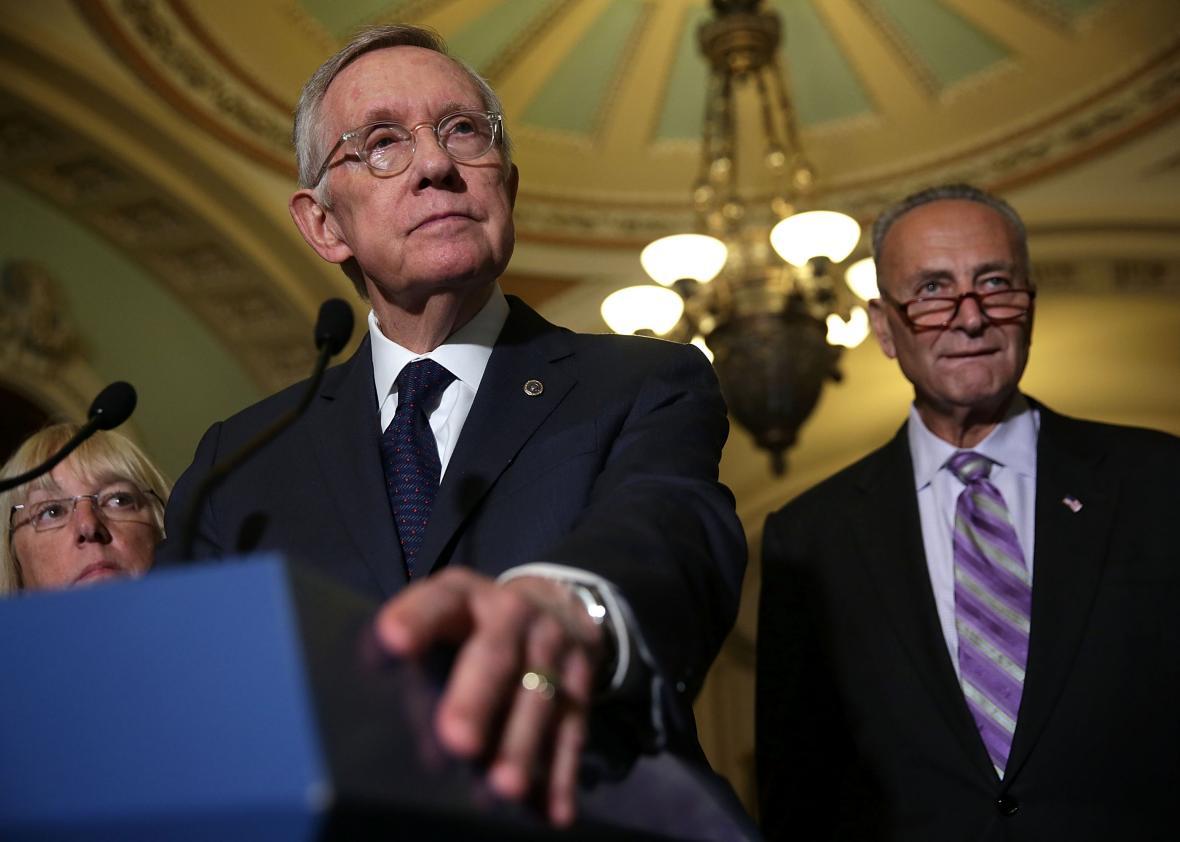Harry Reid has a message for the U.S. intelligence officials who will soon be giving Donald Trump national security briefings: Just fake it.
“How would the CIA and the other intelligence agencies brief this guy? How could they do that? I would suggest to the intelligence agencies, if you’re forced to brief this guy, don’t tell him anything, just fake it, because this man is dangerous,” the Senate minority leader told the Huffington Poston Wednesday. “Fake it, pretend you’re doing a briefing, but you can’t give the guy any information.”
Reid’s comments were in response to the request Trump made earlier in the day asking Russian hackers to target Hillary Clinton. Let me say that again: The Republican nominee for the president of the United States of America publicly asked a foreign government to conduct cyber-espionage against his political opponent. Making that public plea even more frightening were the celebrity businessman’s additional comments suggesting he longed for the type of power it would take to coordinate the recent hack of the DNC computer system and subsequent politically timed leak of roughly 20,000 emails. “I wish I had that power,” Trump told reporters while dismissing the Clinton camp’s suggestion Russia pulled off the hack to aid his chances this November. “Man, that would be power.”
Now that he’s officially his party’s nominee, Trump (like Clinton) is set to begin receiving national security briefings as soon as next week. As NPR notes, while not officially required by law, the ritual of sharing sensitive information with major-party nominees dates back to the 1950s and is meant to prepare the candidates for the transition of power should they be elected. Given Trump’s, let’s say, unpredictable speaking style, a number of U.S. intelligence officials has voiced serious concerns about him receiving the routine briefings.
Interestingly enough, House Speaker Paul Ryan—a Trump endorser, albeit one who is on the record voicing the Washington consensus that it would generally be a bad thing for the Kremlin to involve itself in an American presidential election—wrote a letter to National Intelligence director James Clapper earlier this year asking that Clinton be denied the security briefings. Ryan said then that it would “send the wrong signal to all those charged with safeguarding our nation’s secrets” given that an FBI investigation found Clinton’s decision to use a private email server as secretary of state to be “extremely careless.” Clapper, however, denied the speaker’s request, saying the briefings would be “provided on an even-handed non-partisan basis.”
Elsewhere in Slate:
